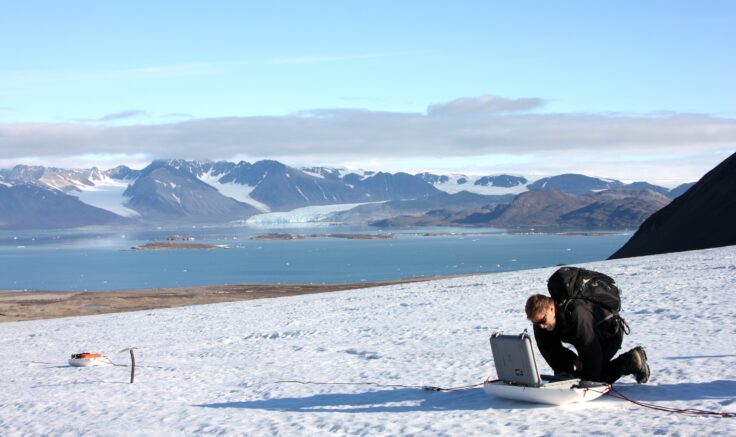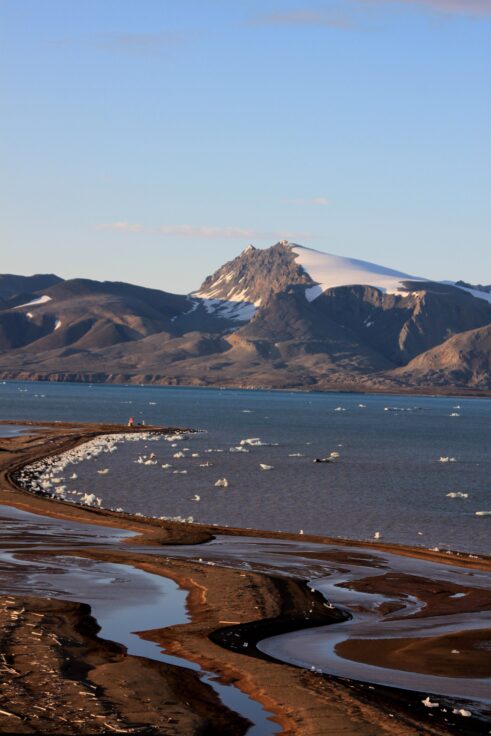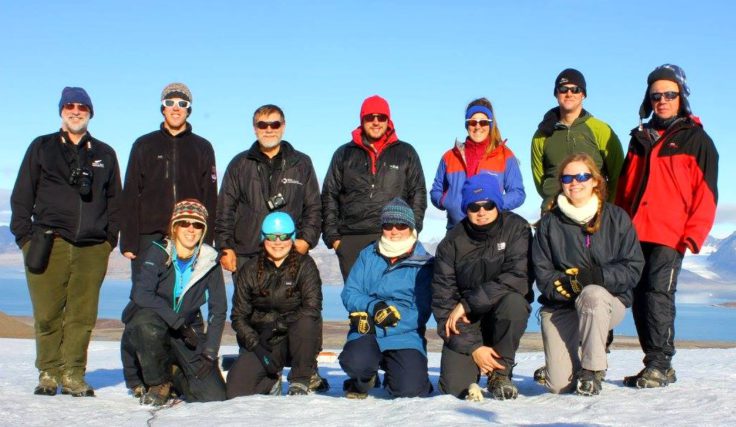NERC Advanced Training Short Course
A Skills Framework for Delivering Safe and Effective Fieldwork in the Polar Regions
Course date: 24 August – 9 September 2016
Deadline for applications: 4pm, Monday 25th April, 2016
British Antarctic Survey (BAS) is offering 16 PhD students and Early Career Researchers a unique opportunity to gain practical skills for working safely and effectively in the polar regions. A short course, funded by the Natural Environment Research Council (NERC), will consist of two parts – theoretical work in Cambridge followed by on the ice experience in Svalbard. Leading operational polar experts and researchers from BAS will guide this seven day course, teaching participants to translate exciting scientific ideas into safe, achievable and effective field plans.

If you know the science theory, but feel unsure of how to apply it on the ice then this course could be for you. Three days of theoretical and practical work at Madingley Hall in Cambridge will be followed by travel to the UK Arctic Research Station in the international research village of Ny-Ålesund, Svalbard, to spend four full days of active fieldwork and practical training on the ice and at sea.
You will work on the Midrelovenbreen Glacier and carry out a radar survey of ice structure where you will learn skills that can be applied to many types of glaciological fieldwork. You will also have the chance to work on offshore biological sampling and develop general skills in small boat survey work. Planning each day and taking turns at leading the team will also feature in the course.

Course Director Dr Alistair Crame, British Antarctic Survey, says,
“This is an exciting opportunity open to all NERC PhD students and Early Career Researchers where they can learn and put into practice a wide variety of polar fieldwork skills. The primary aim is to make them feel more confident about living and working in either the Arctic or Antarctic, or indeed any remote, challenging environment. The four days at Ny-Ålesund gives invaluable practical experience of life at a high-Arctic locality”.

Feedback from previous course participants who blogged about their experience was excellent.
“The course instructors are all highly experienced in organizing and conducting field work. There were lots of useful tips and ideas, some of which I am currently putting into practice as I plan my own field season in the Arctic this summer. It also gives you the opportunity to experience firsthand the Arctic environment in a truly beautiful setting.” Moya Macdonald, University of Bristol
“Going to Ny-Ålesund was a great experience and one of the best things I have done as part of my PhD. The best way to carry out fieldwork or to plan fieldwork is to have some understanding of both the area you would like to visit and the structures in place which can help you achieve your aims. The workshops in Cambridge and the week spent in Ny-Ålesund fulfilled both of these criteria and will hopefully be exceptionally useful in the future. The people are also great and it is just a lot of fun!” Ed Pope, National Oceanography Centre, Southampton
“An incredible course! It was amazing to be able to learn first-hand from experts and actually put it into practice in the field! We spent the first few days in Cambridge learning the theory behind planning successful polar fieldwork through the case studies and experiences of the course instructors. It was a great opportunity to be able to ask specific questions regarding our own research projects and fieldwork ideas. The real value in the course was the unique opportunity to actual put all this theory into practice; my perspective on what is and isn’t possible certainly changed when we moved from the warmth of Cambridge to the Arctic winds of Svalbard! Visiting such a magical place has really inspired me to pursue my research aspirations in the polar regions, as well as providing me with the lifelong networks and skills to do so. A big thanks to the team at BAS and Ny-Ålesund for all their efforts!” Anna Belcher, National Oceanography Centre, Southampton
Practical details about the course
Numbers will be strictly limited to 16 participants. The Arctic field component of the course will be run with two consecutive teams of eight.
Other aspects of the course include:
- Fieldwork planning in remote regions: how to develop a comprehensive, achievable field plan; legal, political and environmental obligations; risk assessment; shipping equipment; financial planning and budgeting. BAS Operations Managers will give practical examples of project planning from their extensive experience in both polar regions.
- Remote sensing options and use of topographical maps: use of a GPS and GIS; aerial photographs and satellite images. Members of the BAS Mapping and Geographic Information Centre (MAGIC) will demonstrate some of the latest state of the art techniques.
- A series of tasks and practical exercises to help you develop your skills in polar leadership, practical planning and how to work efficiently in remote regions. Can you think on your feet and lead a small team? Can you change a field programme at short notice in challenging weather conditions?
If you are interested in applying for this course please email Ali Teague — basstudent@bas.ac.uk confirming:
You are a UK-registered PhD student or ECR working in a sector aligned to NERC’s Science remit
- Your institute will provide Arctic travel and Arctic fieldwork insurance
- You have a current passport valid until at least 31 January 2017
- You are able to attend the course between 24 August—9 September 2016
You will then be invited to:
- Complete an application form
- Submit a full CV
- Submit a letter of motivation (no more than 2 sides of A4) which should include a brief description of your PhD/postdoc research topic, and an account of how you think that you will benefit from this course
- Provide an email from your home institute supervisor or departmental manager confirming their support and that you are covered by insurance for Arctic travel and Arctic fieldwork.
You will be expected to submit a short report and questionnaire after completion of training.
Selection for the course will be overseen by a small committee comprising BAS tutors. This course is for PhD and ECRs registered with a UK academic institution. NERC-funded Doctoral Training Partnership students are strongly encouraged to apply, but other UK-based NERC PhD students and ECRs may also be eligible.
The deadline for receipt of completed applications is 4pm, Monday 25th April 2016, and applicants will be notified of the outcome as soon as possible after this date.
A preliminary programme will be issued and all travel and subsistence costs will be covered by the course.
*Please note course dates for the Arctic fieldwork will be confirmed in due course. It is anticipated that for the first group of eight students to travel to Ny-Ålesund the course will end on 2nd September, and for the second group there will be a break between 28th August and 4th September.
